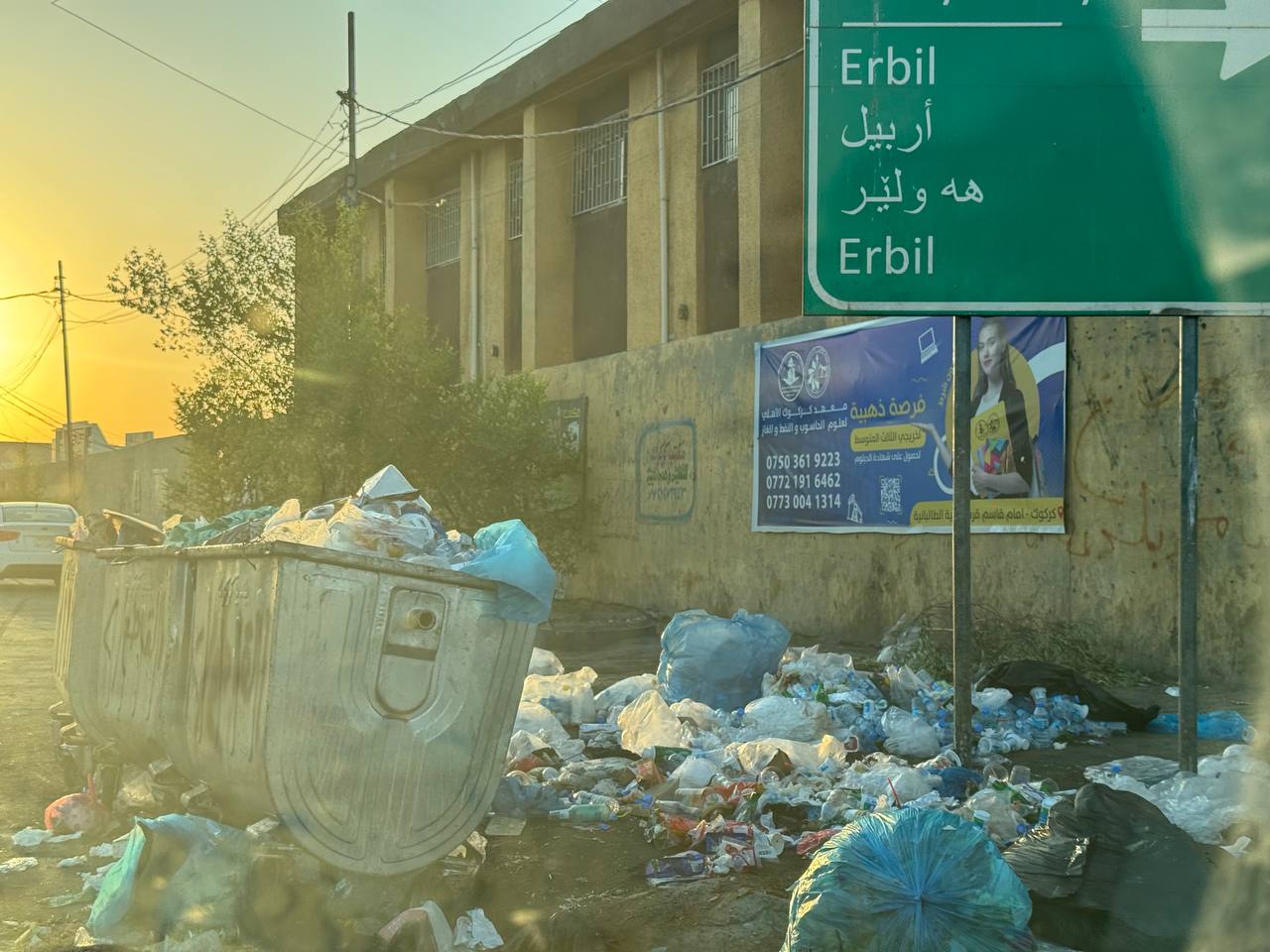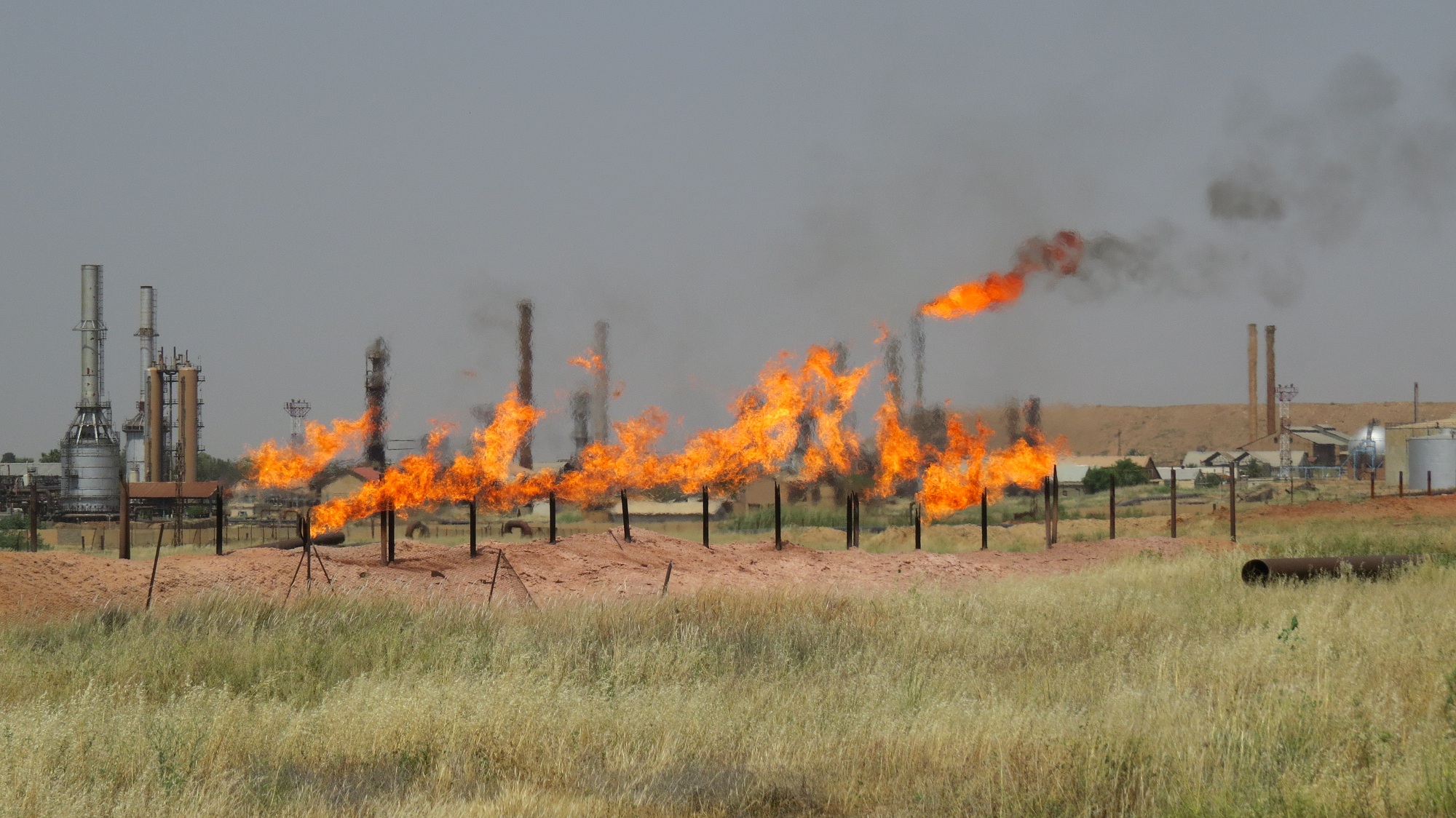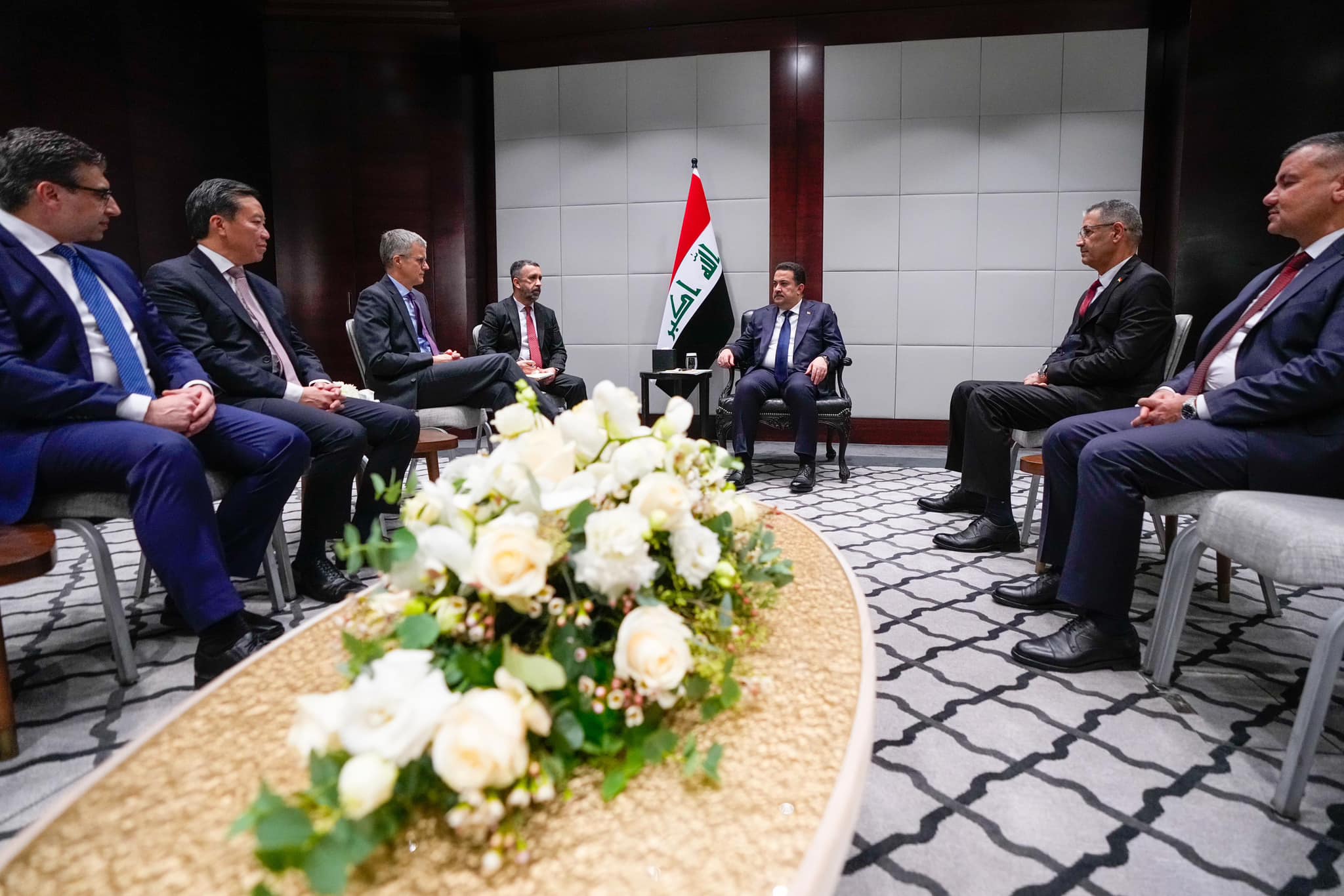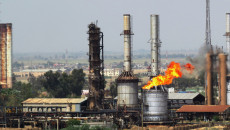“It doesn't matter which company it is, what matters is the services it provides to the people of Kirkuk,” said Arshad Zainal, 47, a butcher in the market.
Arshad, a Kirkuki citizen who welcomes any contract between the government and companies to develop oil fields in the province, stated: "It is a very good opportunity because we are rich in oil."
The Iraqi government and BP signed a contract in London last January to rehabilitate and develop four fields of the state-owned North Oil Company in Kirkuk province.
According to the Iraqi government, the contract aims to increase production and achieve the highest level of oil and gas production.
"The British once discovered Kirkuk oil, so they consider themselves the owners, but what matters to me is what kind of services they will provide in exchange for our oil," Zainal, a Turkmen, said.
The northern, oil-rich city Kirkuk, is home to about 1.77 million Arabs, Kurds and Turkmen. Located 238 kilometers north of Baghdad, Kirkuk is an ethnically mixed province and has long been at the center of disputes between the federal government in Baghdad and the Kurdistan Regional Government KRG.
There are five main crude oil-producing fields in Iraq’s second largest reserve; Avana, Bay Hassan, Baba Dome, Jambur, and Khabaza, under the control of the Iraqi Government’s North Oil Company.
"The foreign company is getting its share and even more. What can we ask for when our voice does not reach our government," said Bassam Awad, 39, an Arab citizen.
He also believes that Kirkuk should have built all its streets of marble for its oil wealth, but “their pockets have not been filled with oil money yet,” referring to Iraqi government officials.
Since the contract was signed for the return of the British company, the above is part of the ongoing debate among Kirkuk people because in the past, oil revenues have not been invested to provide basic services to the oil-rich city.
The city is constantly dirty, garbage, water, electricity, education and health sectors are at a poor level, which is why most are not optimistic about the return of the foreign company to Kirkuk.

In March, the Iraqi Oil Ministry announced that 85 percent of the workers employed in the Kirkuk fields would be Iraqis, but when the information was published on KirkukNow platforms, most comments criticized it as mere propaganda.
"We've seen this movie before in Iraq," one commenter wrote, while another wrote, "They're back to control the Iraqi economy."
Others demanded that 85 percent of the workers be from Kirkuk province, not the whole of Iraq.
"Employment will also be via mediators (wasta)," another commenter wrote.
This indirectly shows that people are skeptical about the implementation of the contract and still need assurance from British Petroleum (BP) to work in the oil and gas fields in Kirkuk.
On March 31, Bassem Mohammed, acting minister of oil, said the contract would increase oil production from the Northern Oil Field to 420,000 barrels per day from the four fields of Avana, Bay Hassan, Jambur, and Khabaza in Kirkuk province, compared to only 308,000 barrels currently.
"The contract will be for 25 years, with a possibility of extension for another five years," Mohammed added.
The British company's contract is not only for oil but also partly for gas from fields to the Northern Gas Company, which, according to an oil ministry agent, "has a capacity of 400 million cubic feet of gas per day."

According to the contract, the British company will assess, repair, and expand the facilities of the North Gas Company.
British Petroleum (BP) suspended operations in Kirkuk oil fields in January 2020 due to disagreements with the Iraqi government over a previous contract signed in 2018 to increase oil production in Kirkuk.
In 2019, the Iraqi Oil Ministry announced a plan to increase Kirkuk's crude oil production to 1 million barrels a day.
“Their withdrawal in 2020 was related to the fact that the British company had asked to work in all the oil wells in Kirkuk not part of it," said Ahmad Askar, who was then chairman of the oil and gas committee in the Kirkuk provincial council.
"It was offered to renew the contract by increasing production capacity, but the Iraqi government refused."
BP has been operating in Iraq since the fall of the Ba'ath regime in 2013, before leaving Kirkuk in 2014 when the extremist militants of the so-called Islamic State of Iraq and Syria took over large swathes of Iraq.
"I only heard the name of the company from the media. The government should monitor it and force it to provide services, job opportunities, and educate our youth in various fields," said Halmat Qadir, a Kurdish trader in Kirkuk's Jwt Qawa bazaar.

“If the company wants to achieve its goal, it must show us that the oil extraction is partly to serve the people of the city,” said Isa Hassan, a Kurdish civil servant. "Kirkuk oil has been sold for a long time and the people have not benefited," he said.
The acting minister of oil, explained in an interview with the semi-official Iraqi News Agency INA that the contract includes providing social services to the surrounding areas, employing thousands of Iraqi workers, supporting local companies, and implementing training programs to develop various engineering and technical cadres.
The British company is also committed to building a 400 MW power plant, which will strengthen the country's electricity infrastructure.






